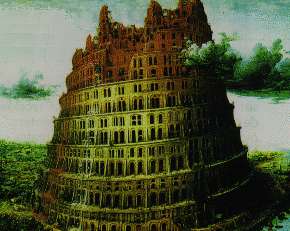Miracle of miracles, I'm posting a Top-5 Tuesday list on a Tuesday! Thank you for your patience during this long and unexpected hiatus. I was in a show, and things got really hectic, but I am glad to be back at it again!
If you can remember back to last time I posted a top-5 list, (if you can’t, I don’t blame you. It was a long time ago), you’ll remember that we pointed and laughed at things early sci-fi got right. Well, pointed and laughed in an analytical and geeky sort of way. This time, we get to be even more geeky, as we explore the top-5 fascinating things that 19th century sci-fi got right!
Now, I had to limit this list to one entry per author, otherwise this would be a Jules Verne fest. Innovative guy, that Jules Verne.
And, here we go.
5. Automatic Doors (H.G. Wells, The Sleeper Wakes)-

In his 1910 novel about a man who wakes up in a futuristic dystopia after sleeping for three-hundred years, he describes a device that sounds an awful lot like a modern automatic sliding door. One of the citizens of the future civilization walks straight into a wall, only to have a portion of the wall slide away, admitting him entrance into the chamber beyond. The first automatic door was installed around half-a-century after the book was published.
4. The Credit Card (Edward Bellamy, Looking Backward 2000-1887)-

Bellamy’s main idea in Looking Backward was the description of a future socialist utopia. However, aside from his political commentary, he also made some fascinating social and economic predictions. He described the modern day credit card down to the minute detail of the buyer receiving one receipt, and the seller keeping the other. In fact, he even called his transaction method, a “credit card”, a term which didn’t become part of the vernacular until the 1950s.
3. The Speed of Light (Camille Flammarion, Lumen)-

Flammarion’s early sci-fi/fantasy novel philosophizes over the nature of light, and the possibility that time and space could be perceived differently at the speed of light than it is at sublight speeds. Lumen was published in 1872, 30 years before Albert Einstein would take up the concept of light in his Theory of Relativity.
2. The Internet (Mark Twain, “The ‘London Times’ in 1904”)-
Yes, Mark Twain. In addition to his beloved stories of childhood adventures, and American life, Samuel Clemens also dabbled in the budding genre of science fiction. The “telectroscope” described in his 1898 short story “The ‘London Times’ in 1904” brought the affairs of the entire world into the homes of ordinary citizens, much as the internet is capable of doing today.
1.The Moon Landing (Jules Verne, From the Earth to the Moon)-
The similarities between Jules Verne’s fictional moon landing, written in 1865, and the actual moon landing in 1969 are almost uncanny. The American astronauts in the French novel From the Earth to the Moon, even use a location in Florida as their launch point. As I mentioned in the last top-5 post, his calculations for the rocket-launching cannon were almost plausible, though the barrel would have had to been much longer to propel the astronauts out of the atmosphere.
So, what do you think of these ‘predictions’? Were they inspirations? Calculated hypotheses? Good guesses? Coincidences? Were there any others you think I should have mentioned? Let me know in the comments!
Keep on glowing in the dark,
Elora










